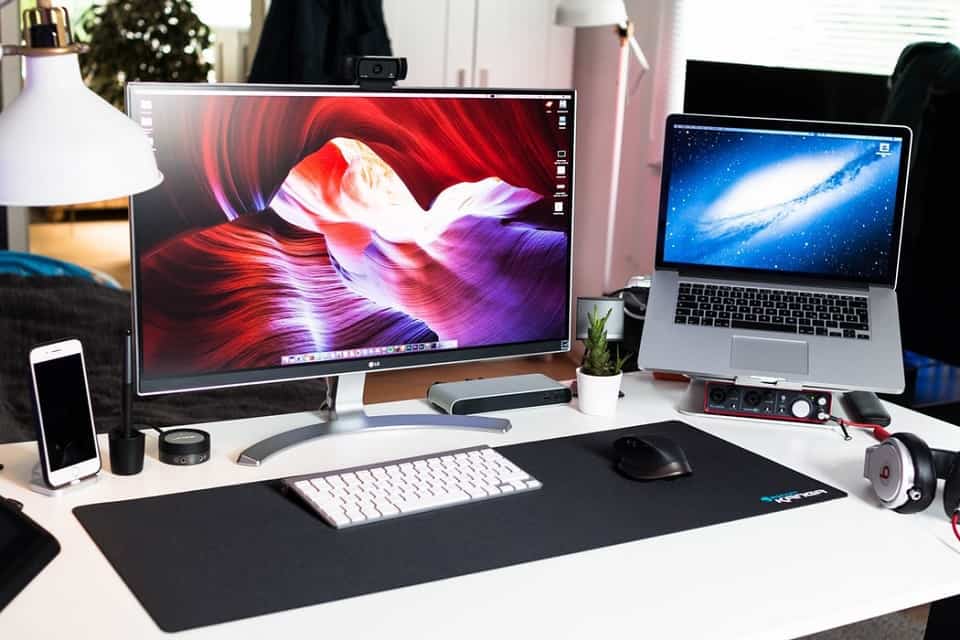Digital nomads don’t need much in life, but they do need good Internet access or they starve. When you work online, it’s not a “moment of local charm” when the Wi-Fi dies just as you’re about to deliver a month’s work to a client, it’s a total disaster.
Sadly, if you want to tour the world, then you need to come to terms that while some places offer superb, reliable Internet access, most do not. In fact, when you’re overseas, you may need to take some action to get faster internet.

Table of Contents
How To Get Faster Internet While You Travel
The easiest way to get better Internet is to think about your needs before you travel. Some countries are notorious for lousy Internet (we’re looking at you Philippines) but that doesn’t mean you can’t get decent internet in those places, it just means you have to be very choosy about where you stay.
For example, New Clark City, Makati, BGC and some of Cebu (particularly near IT Park) offer reasonably reliable Internet services and plenty of other places to go when your Wi-Fi fails. This is not true if you rock up on an island with a single hotel.
However, if you get somewhere and the internet sucks this is how you might want to tackle it:
Hardware Solutions For Faster Internet When Travelling

Hardware solutions are often the best solutions. They tend to be permanent and reliable. Some are even free! So, check these out before you start trying to modify your devices to get a signal.
Don’t Forget To Plug Your Hardware In
Battery saving technology will often reduce the power input to your hardware when it’s unplugged. That means your wireless card loses power and is less capable of picking up weak signals. It won’t make a huge amount of difference but plugging it in might make enough difference to enable you to e-mail your clients.
Shift Around The Room
It sounds stupid but it often works. I once spent a month in Bangkok where I needed to keep my laptop in the far corner of the room or it would lose the pitifully weak Wi-Fi signal on our floor.
There are technical tools that can help you find the best place in the room to find the best Wi-Fi signal (Windows users might want to try Heatmapper and Mac users Netspot) but honestly? That feels a touch over the top, just pick your laptop up and walk around and watch the signal strength indicator.
Think About Going Wired
Many hotels have decent Ethernet infrastructure even when their Wi-Fi is garbage. Ask at reception if this is the case and see if they have an ethernet cable you can borrow if they don’t – buying one shouldn’t cost more than $10 and often far less.
This can be the cheapest and easiest fix for a dodgy net connection. It’s a solution I used for 6 months in Thailand when the hotel Wi-Fi kept dropping out (for no clear reason).
Buy An External Wireless Card
An external wireless card isn’t expensive, and it adds a serious boost to the standard Wi-Fi detecting capabilities of your laptop. They’re not very big and they plug into your USB port (or in my case, the ever-growing set of external USB hubs that I use).
Buy one that’s compatible with all known devices (that is Windows, Mac, and Android) and you can switch it around to whichever device that you need at the time. This is much better than buying multiple devices.
We’d recommend this 1200Mbps Wireless WiFi Adapter on Amazon, which is cheap, cheerful and does the job perfectly well.
If All Else Fails A Travel Router Can Work Too
Some people swear there’s a little extra boost from using a travel router over an external wireless card. We’re not entirely convinced by that argument but if you’re in a desperate place, then any hope is better than none, right?
If you do decide to go this route, then we’d strongly recommend that you choose a travel router with a signal boosting capacity. We’d also pick something with a little more functionality than just a router.
Like this RavPower device which also allows you to Wi-Fi up SD cards, Hard drives, etc. too. Which is very handy. You can check the latest price on Amazon for this here.
Software Solutions

Software solutions are often fiddlier than hardware solutions, less reliable and frankly best employed in the worst-case scenarios. Like when you’re trapped at an airport at 3 a.m. after waiting 16 hours for an hour flight and you still have a deadline to meet.
Switch Off Background Applications
Facebook, Gmail, Skype, Dropbox, etc. all eat bandwidth all of the time. If you need to get things done and your connection is worse than finding a cockroach in your sandwich; switch off everything you can that is running in the background.
If you’re using less bandwidth in the first place, the meager bandwidth you have may actually be more than enough to get the important jobs done.
Just don’t forget to switch everything back on again when you find a better connection.
Try The Mobile Website Version
Many mobile websites have been optimized to run on handsets that simply don’t get as much bandwidth as a laptop ever and which have far less processing power. That means you can often get a mobile website to run when an ordinary desktop version creeps along at a snail’s pace.
To find the mobile version of a site, just add m. before the domain name in the URL (so https://facebook.com becomes https://m.facebook.com) and be prepared for a website that looks a bit crappier than usual but offers roughly the same functionality.
Consider Speedify
Speedify launched in a blaze of glory thanks to a bunch of Kickstarter backers. It works on the principle that if you’ve got several terrible strength signals, why not put them all together to make one better connection?
Now, it’s quite clever in the way that it joins multiple networks together and we appreciate the art of it but it’s not very efficient. However, when you’re only getting 2kb a minute, who cares as long as you get something faster, right?
You can pick Speedify up here for free and it comes with a bunch of nice security options to keep you safe when using public connections too.
Switch On Data Saving In Your Browser
Web browsers are hideously inefficient and eat up data like a starving man with a packet of Malteser’s. Get under the hood though and they often have functionality that allows you to pre-compress both text, images, and other data before they’re sent to the device.
So, switch on any data saving options for your browser when you can.
We’re not convinced that this adds masses of additional bandwidth and we note that Google has already killed this functionality in Chrome for desktop, but it might help you squeeze just a little extra out of your connection.
Consider Opera Mini (If you’re on Android)
Opera claim that using Opera Mini’s dedicated data compression techniques can save up to 90% of your data bill and thus, in turn, 90% of your data usage.
We don’t do much browsing on our smartphones, but it certainly seems to be faster than Chrome though 90% may be pushing it. Given, however, that it’s free, isn’t Google-owned or Apple-owned – we’re fans. Give it a try, you have nothing to lose.
The Last Resort When Your Internet Connection Sucks Overseas
If nothing above has solved your Internet problem, you have two options.
Option one: go somewhere else. I’ve done this many a time, finally conceded defeat and gone elsewhere to find a working connection. Hotels, cafes, bars, etc. can all provide an alternative when your connection dies. In fact, the only time I really use co-working spaces is in the event of Wi-Fi death in my home.
Option two: suck it up buttercup. If you’re not on a tight deadline, do what you can do without an Internet connection. Yes, you’ll miss out on Facebook notifications and the latest drama on Reddit and your mom sending your cat pictures, but you’ll still be able to do quite a lot of work. There aren’t all that many remote work opportunities that require you to be always online.
Conclusion
There are many things that you can do when your internet sucks overseas. Start with the hardware-based solutions: plugging the equipment in and moving around costs nothing. Then try external boosters. If that doesn’t work move on to software solutions. They may not be perfect but they’re better than nothing.
The real mark of a digital nomad is not living a life of perfect Internet access but knowing what to do when it disappears. Good luck. ?
